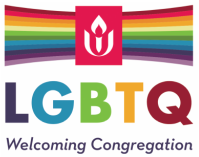| At our January retreat, we saw an upsurge in interest in learning about diverse spiritualities. In response, the eNews posted a call for folks interested in working on new Adult Religious Education programs. Joyce Henricks, Hal Downs, Stacey Pattison, and Jodi Fisher stepped up and formed a committee! Let any one of them know if you are interested in joining that committee. And if you have an idea for an adult RE program, pitch it to them! Later this spring, following our current “Building Your Own Theology” class, Hal Downs will lead a course exploring the notion of covenant in Judaism and Islam. Nowadays, lots of the fellowship’s real work gets done in committees. Let’s work together. Spring forward and join a team! If you’re interested in social justice, contact Norma Bailey to participate in the Social Justice Coordinating Team. Interested in RE (for kids)—then let Mel Bailey know. Want to get involved in communication and public relations? Contact Sally Armstrong, chair of the Communications Committee. And there are other committees that would welcome your participation. Some of us will be getting (again) stimulus checks that we do not, in fact, really and truly need. And so many others are struggling. It’s an ethical quandary. One possibility is to donate these funds to the Minister’s Discretionary Fund. Drew uses this money to help anyone who needs emergency support—members, friends, and others who ask. Click the “donate” button on our website and you will see this listed as an option. Another possibility is to donate your stimulus cash to UUFCM for the purpose of growing our endowment. Email Treasurer Terrie Robbie ([email protected]) for ways to do this. Or donate to one of the many local charitable agencies that could really use the help. The Soup Kitchen, for example, is staying very busy during the pandemic, working to ward off hunger in Isabella County. There is also the Food Pantry, the homeless shelter (ICRH), domestic violence and sexual assault support services (R.I.S.E.), and others including the Care Store (health and cleaning supplies) and Clothing, INC. |
|
0 Comments
We believe in science. And there are scientific studies of how churches change as they grow or shrink. The work of Arlin Rothauge and Alice Mann (both Episcopalian) gives us a framework for understanding these dynamics in UUFCM. This is something Drew and the Board began discussing this week.
Churches are classified into four types according to size: family congregations, pastoral congregations, large program congregations, and very large corporate congregations. When average service attendance is 50 or less, churches function as extended family systems. Almost everyone knows almost everyone else’s name. There may be no full-time clergy. Instead, family church life depends on key persons, matriarchs and patriarchs, to undertake and to persist in leadership roles. In a pastoral church, a single full-time minister serves a congregation where attendance averages between 50 and 150. It is no longer the case that everyone knows everyone, but most people recognize the faces of other regulars and the names of many. There may be two or three distinct family-style networks. The minister knows everyone and, along with the elected board, becomes the center. Pastoral churches move away from dependence on extended periods of service by critical individuals, the matriarchs and patriarchs. Our fellowship is in transition from family congregation to pastoral congregation. This brings strain: we lose some of the intimacy of a family-like group, we need to identify and develop leaders beyond the matriarchs and patriarchs, and we must adjust to the central role of a clerical professional. Resistance to change explains why churches tend to plateau around the upper limit of each church size. It is not easy to break through; we were stable for quite a while. But we know—we have seen–– that UU has been, for many, a saving faith. So our new growth spurt, even with the growing pains, is cause for deep joy and celebration. I feel this joy. It brings tears to my eyes. Guy Newland
Guy Newland, Board President
|
The Board President’s report of the highlights from the monthly Board meeting.
Archives
March 2021
|

